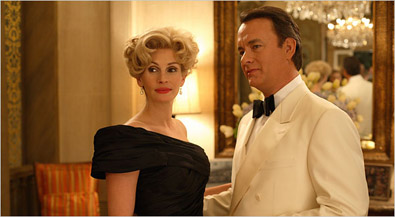|
|
A-List: Five Best Mike Nichols MoviesBy J. Don BirnamNovember 24, 2014
1. Who’s Afraid of Virginia Woolf? Nichols’ first motion picture remains in my view his best, if only because, well, what a way to burst out onto the scene. From the perspective of critical reception, how about these stats for accolades: the movie received a whopping 13 Oscar nominations (the record is 14); its entire cast was nominated for an acting Oscar (only two other movies have done this); and the movie received a nomination in every single category it was eligible for (only a 1930s obscure Best Picture winner, Cimarron, has achieved this). And how about for what really matters? By the time Nichols made Virginia Woolf, the Edward Albee play was well-known and had been received positively when on the stage. How then, to make it appealing to audiences anew? And how to keep the audience engaged in a play that features mostly people talking and is set in one single room? Nichols answered these questions brilliantly. He cured the single room problem by adding a small number of moves outside the protagonists’ home. And he solved the issue of the talking-only play by using Hitchcock-like close-ups and zooms of the actors for dramatic effect. All of this worked, and the result is a gripping film that is not afraid to delve deeply and honestly into themes about sexuality. Indeed, form the very beginning, Nichols exhibited no fear in this realm. But most notable in Virginia Woolf is the acting, which by most accounts can be attributed as much to Nichols as to the actors themselves. Rarely portrayed as anything other than a dazzling beauty at the time, Elizabeth Taylor is portrayed older, heavier, and rawer. The emotions of hatred, love, and loss that she exhibits are the best work of her career, and rightly netted her a second Best Actress Academy Award. The dynamic between the actors also works seamlessly and gives the film the realistic and believable nature that the play demands. Mike Nichols had a brilliant career and graced us with unforgettable movies. In a somewhat unexpected twist, however, I believe his first was the best amongst his masterpieces.
|

|
|
|

|
Tuesday, April 23, 2024
© 2024 Box Office Prophets, a division of One Of Us, Inc.


